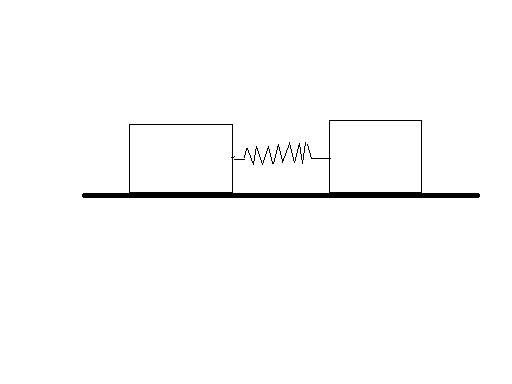ans will be (c) ≥ 1/2mv2 as KE as measured in CM's frame is always least.
Velocity of CM of two particles is v & the sum of the masses of two particles is m. Kinetic energy of the system :
A. will be = 1/2 mv2
B. will be always less then 1/2 mv2
C. will be greater than or equal to 1/2 mv2
D. will always be greater then 1/2 mv2
-
UP 0 DOWN 0 0 5

5 Answers
ke of the system is NOT the ke of com ..
rather ...it is the sum of ke of all individual particles.
an objective approach :
consider a system : 2 particles each of mass m, one at rest and other with vel v.( same dxn)
ke of the system = 1/2 mv^2
ke of com = 1/2(2m) (v/2)^2 = 1/4 mv^2
this implies ---> ke of system is greater than ke of com ..
consider the same system : but now they both move with vel v ( same dxn)
this time ..u will find that ke of com = ke of system.
hence : ke of system is greater than or equal to ke of com (learn it)
option (c)
just to add to that, when μ=0 , the compression in the spring is maximum when the kinetic energy of the system is minimum.
i.e velocity of each particle is equal to that of Vcm
